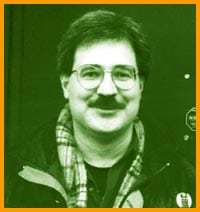Newly discovered documents reveal grisly details about the RCMP’s scrutiny of “dirty” lesbians.
A 400 page RCMP report, released under the Freedom Of Information Act, notes the 1970s scrutiny of the lesbian arm of the feminist lobby group, Wages Due.
“The police refer to the lesbians of Wages Due as ‘dirty’ and as ‘radical lesbians who have a perverse desire to de-feminise themselves,'” says Patrizia Gentiles, a history grad student at Queen’s University.
“One of the astonishing things about this document,” she says, “is that it reveals a behind the scenes police presence in the movement history of Canada.
“Although we were particularly interested in gay and lesbian groups, it also reveals surveillance of the feminist, native, black and child care movements.”
Other details show police scrutiny of groups like the Coalition For Gay Rights In Ontario (now renamed CLGRO) and the National Gay Rights Organisation (now defunct).
Gentiles is working on a massive, ongoing history project with professor Gary Kinsman (of Laurentian University), studying the federal government’s war on homosexuals.
From the 1950s until the end of the ’70s, hundreds of gay men and lesbians were “purged” from government jobs in Ottawa in the name of national security.
“The RCMP held the theory that homosexuals were a security risk because they had a major character flaw – they had something to hide that made them vulnerable to subversion and blackmail,” says Kinsman.
“Unlike the McCarthy witch hunts in the United States that publicly crusaded against ‘sex perverts,’ the campaign against homosexuals in Canada was very quiet and secretive,” he adds.
“Early gay activists had no idea of what was going on and it is only recently that we have uncovered information about surveillance of gays and lesbians continuing until at least 1978.”
Kinsman and Gentiles’s research includes interviews with lesbians and gay men who lost jobs because of the campaign, as well as discussions with government employees and law enforcement officials.
“In the beginning of the campaign the RCMP relied on pressuring known gay men and lesbians to give the names of other homosexuals in exchange for immunity,” says Kinsman.
“However by 1963, the word was out in the gay community not to cooperate and they were forced to switch tactics and rely on morality raids and surveillance of gay hang-outs in Ottawa.”
Kinsman and Gentiles published their early findings in a 1998 report.
It included recommendations to Ottawa such as
Offering a formal apology
Financial compensation to those who lost their jobs during the campaign
And a public release of national security documents still concealed from the public.
“In 1998 CSIS [the federal spy agency] responded to our report with the same line they have always taken,” says Gentiles. “That they have no problem with homosexuality itself, but gay men and lesbians are vulnerable and a security risk.”
Kinsman and Gentiles presented their research earlier this month at The Future Of The Queer Past, the largest international queer history conference ever, held at the University Of Chicago.
The duo is currently at work on a book called The Canadian War On Homosexuals: National Security As Sexual Regulation, scheduled for publication in 2001.

 Why you can trust Xtra
Why you can trust Xtra


